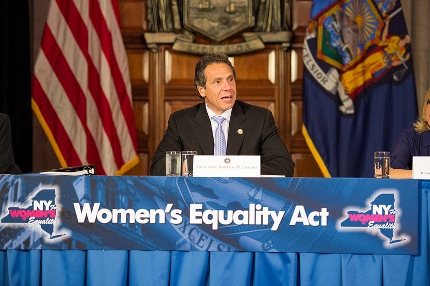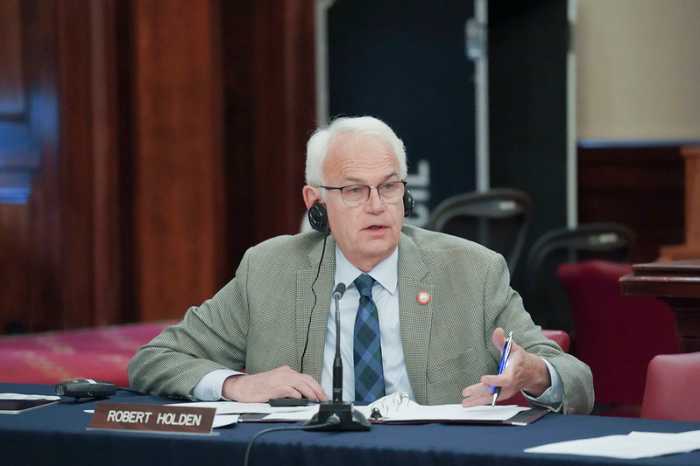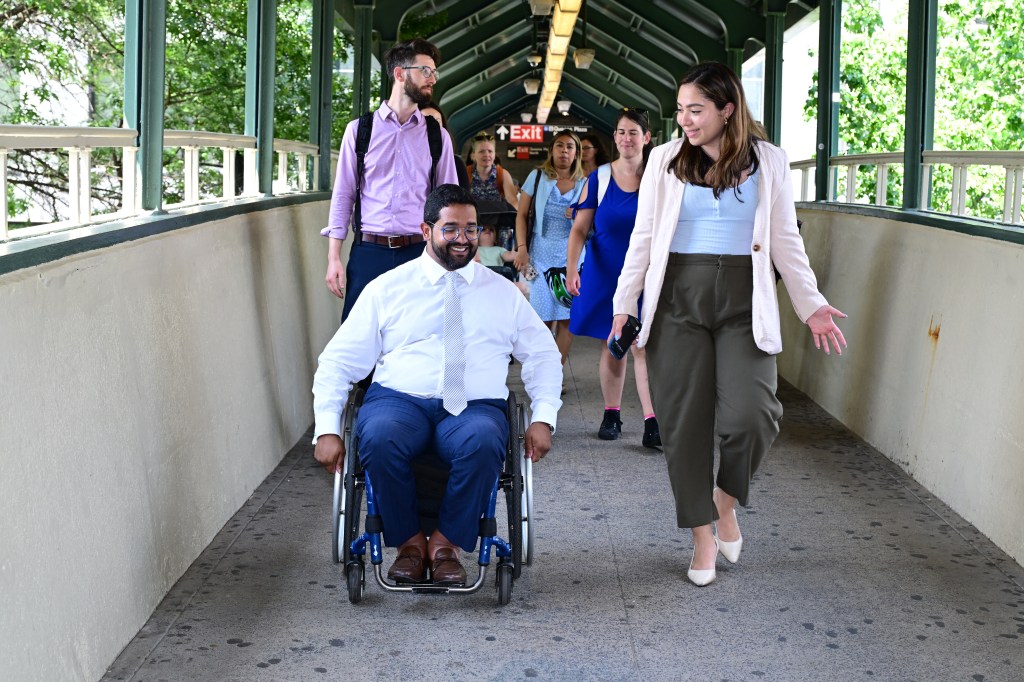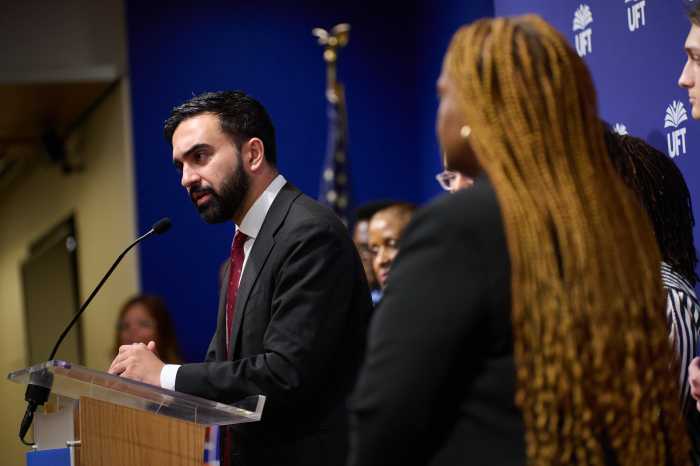Governor Andrew Cuomo, joined by members of the Women’s Equality Coalition, unveiled new legislation today aimed at ending gender discrimination and inequality in the workplace, and protecting abortion rights.
The Women’s Equality Act also strengthens human trafficking laws, provides protections for domestic violence victims and ends family status discrimination.
“In 1848, the women’s suffrage movement began in America at the first Women’s Rights Convention in Seneca Falls, New York. Since then, New York has been at the forefront of important social and legal movements that have advanced the equal treatment of all people,” said Cuomo. “Over the years, however, New York has fallen behind in its role as a progressive leader on women’s rights. The Women’s Equality Act, which I introduced today, is designed to address gender inequality in our communities, and to restore New York as a leader in women’s rights.”
According to a statement from the governor the bill will:
Achieve Pay Equity: The bill would finally shatter the glass ceiling by eliminating the ability of employers to point to “any other factor other than sex” to justify pay disparities and instead require that their pay decisions be based on legitimate reasons. In addition, the legislation would protect an employee’s right to share wage information with other employees without being retaliated against, and increase damages to successful plaintiffs in pay equity discrimination cases. Currently, in New York, women earn 84% of what men earn, and over a lifetime will earn $500,000 less than men. Jobs that are traditionally held by women pay significantly less than jobs predominately employing men. And, in New York, a woman working full time is paid, on average, $42,113 per year, while a man is paid $50,388 per year. In 2013, this is both inexcusable and absurd.
Stop Sexual Harassment in All Workplaces: The new law would ban sexual harassment in every workplace, regardless of the number of employees, so all workers are protected. Currently, New York State law only prohibits sexual harassment in workplaces with four or more employees. In 2011, women accounted for 75% of all sexual harassment complaints filed with the NYS Division of Human Rights and 83% of those filed with the Equal Employment Opportunity Commission. Over 60% of New York State employers have less than four employees.
Remove Barriers to Remedying Discrimination: The legislation would allow successful plaintiffs to recover attorney’s fees in employment or credit discrimination cases based on sex. This will enable victims, most of whom are women, to have the opportunity to vindicate their rights and be made whole in cases where they prevail. Currently, plaintiffs cannot recover attorney fees at trial for employment discrimination cases, making it costly to bring a case. Approximately 77% of sex based employment discrimination cases filed with New York State are filed by women.
End Family Status Discrimination: The bill would prohibit employers from denying work or promotions to workers simply because they have children. By enacting this legislation, New York would be just the 5th state in the nation in protecting against family status discrimination. Currently, New York State law only prohibits discrimination based on “familial status” in areas of housing and credit. Discrimination on the basis of family status adversely affects women with children, particularly women in poor or low income households.
Stop Housing Discrimination for Victims of Domestic Violence: The new law would prohibit landlords from discriminating against victims of domestic violence. Under the current state law, victims of domestic violence are not protected from discrimination in housing, allowing landlords to reject those most in need of housing. Discrimination against victims of domestic violence is almost always discrimination against women since 85% of domestic violence victims are women.
Stop Source-of-Income Discrimination: This legislation would prohibit landlords from discriminating against tenants based on lawful source of income, and therefore maximizes a family’s ability to secure safe and decent housing. Since women account for 76% of all housing choice voucher recipients, including Section 8 vouchers, many of the landlords who refuse to rent to recipients of Section 8 or other public housing assistance recipients are discriminating against women.
Protect Victims of Domestic Violence by Strengthening Order-of-Protection Laws: The legislation creates a pilot program to allow domestic violence victims to seek temporary orders of protection through electronic means rather than having to appear in person. In addition, this bill would ensure that orders of protection are translated, when needed, and makes clear that a victim of domestic violence who has an order of protection against her abuser cannot be accused of violating her own order of protection. Currently, domestic violence victims face too many obstacles in securing much needed protection from their abusers. This bill would remove many of those obstacles, and ensure that domestic violence victims get the protection they need.
Strengthen Human Trafficking Laws: This legislation would strengthen New York’s existing human trafficking laws. It would, in part, eliminate the requirement that “coercion” be proven in a sex trafficking prosecution when the victims of sex trafficking are minors. In addition, the bill would increase the penalties for trafficking and create an affirmative defense in prostitution prosecutions if the defendant was herself a sex trafficking victim. This bill seeks to address the massive underground trafficking industry by holding traffickers accountable, making prosecution and enforcement more effective, and giving greater protections to victims.
Stop Pregnancy Discrimination Once and For All: The legislation would create a specific protection that requires employers to provide reasonable accommodations for pregnant employees. The current protections for working, pregnant women are confusing and have been misinterpreted. Some pregnancies can result in medical conditions requiring reasonable accommodations in the workplace.
RECOMMENDED STORIES






































